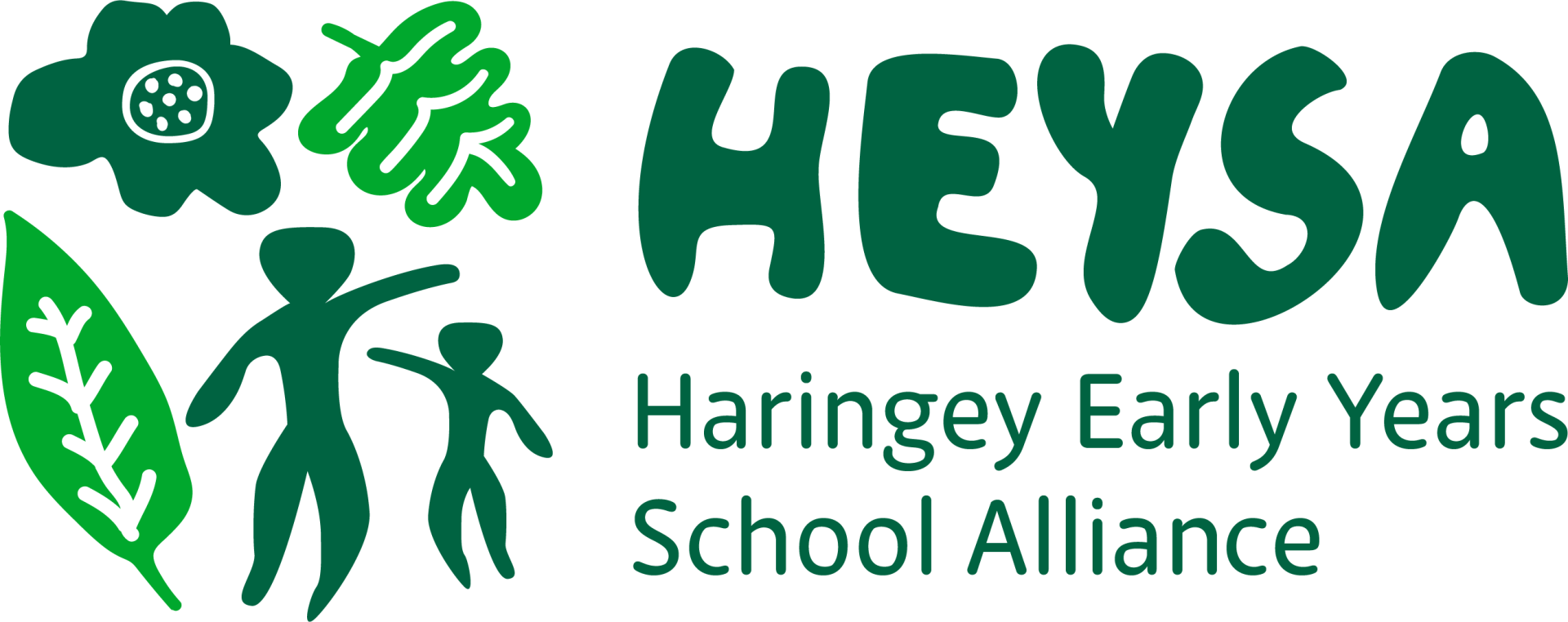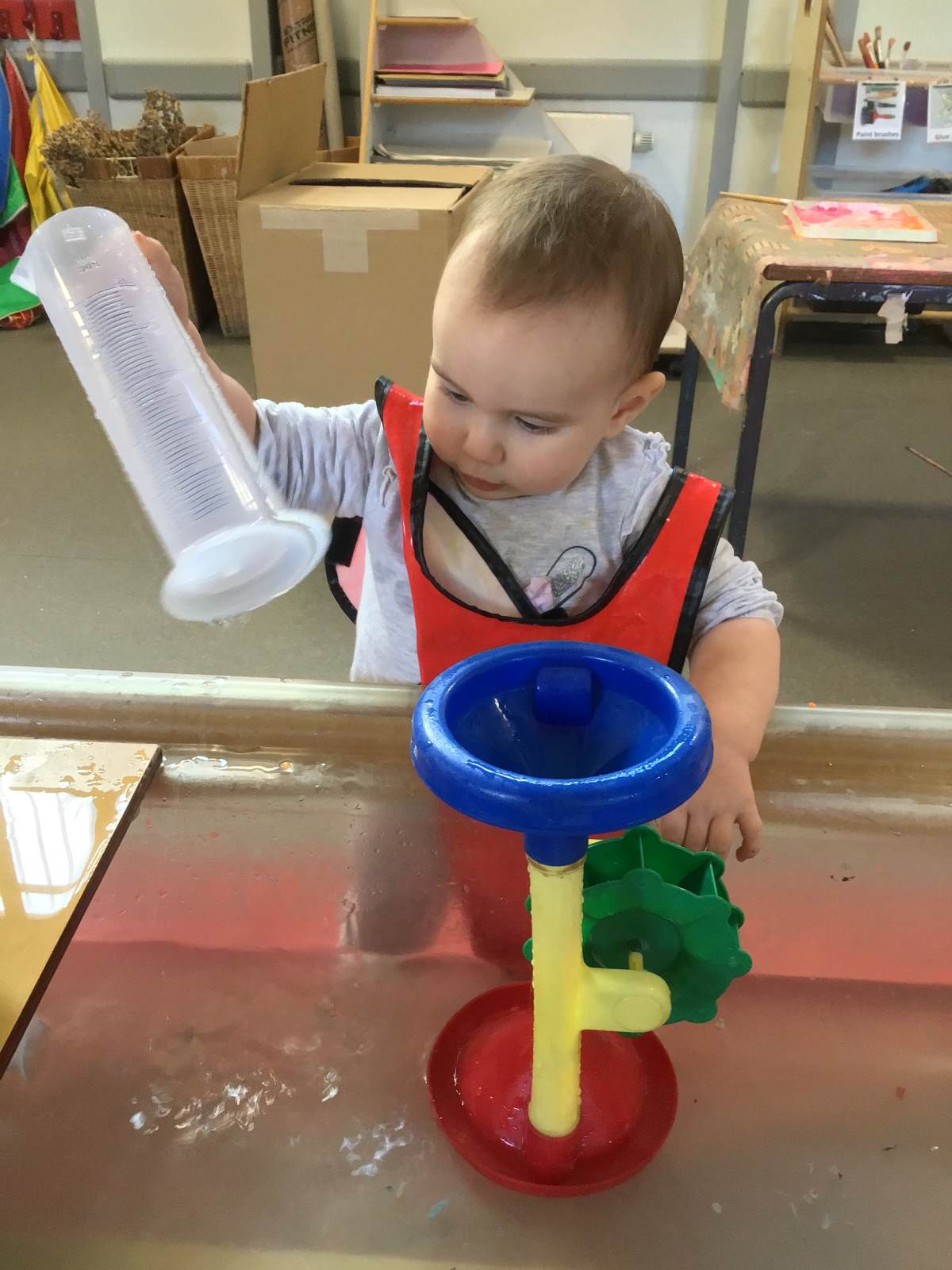Under 2's Nursery
At Rowland Hill Nursery School and Children’s Centre our baby room is a warm, homely environment where your baby can play, explore rest and sleep. Children tend to start with us around their first birthday.
At Rowland Hill we understand that interactions and communication are really important to support your baby’s development. Our highly qualified and experienced staff team spend time playing, caring and singing to develop children’s early communication.
Babies learn about the world through their senses and so their learning environment is very important. Babies grow and develop at a rapid speed from cruising to being more mobile in a matter of months. The Baby room is located in our under threes unit with our long serving staff team.
In the baby area you will find
- A cosy room to relax and sleep.
- Heuristic play resources that support sensory development
- Early song, rhyme and book area
- Role play and puppets
- Space for messy play
- Space for dance and movement
- Dedicated out door space on our deck.
All children have their own key person that offer individual, loving care and attention. Babies need to feel safe and secure in order for them to thrive and so when you met your child’s key person they will talk to you about routines including feeding, sleeping and nappy changing.
 |
 |
Key People and Family Groups
Your child will have a key person who will help to settle them and be their ‘special person’ during their time in our school, in addition to this your child will also have a Co Key Person who will support your child’s personal and intimate needs. Key Persons will work in partnerships with you planning to support and develop your child’s learning and thinking. We also pride ourselves on our relationships with parents – so we will be there for you too! We work closely together to support your child. (So, if your child’s Key Person is absent, their Co Key Person will be there to help to look after and support your child.)
Working in Partnership with Parents
You, as a parent are your child’s first and foremost educator and we value your input into your child’s learning. We encourage you to share with your child’s key person any significant events and interests in your child’s life, which we can celebrate, extend and incorporate into our daily planning. You can do this by adding WOW moments and photos to your child's Tapestry account.
The defined areas are as follows:
|
Explore An indoor area where children access:
|
 |
|
|
Discover A creative space where children can access:
|
Imagine– outdoor areas
Outdoor play enables children to enjoy the natural environment and learn to seek out exercise, fresh air and is a major contribution to physical and environmental education enhancing many other curriculum areas providing opportunities to explore, experiment, manipulate, discover, develop social awareness, learn about their own physical capabilities and limits , create and gain a sense of responsibility.
Decking area
The Under Three’s class has a quieter outside decking area directly outside Explore, which links into the big garden. This allows a quieter space for the Under Three’s to explore new and exciting activities and supports the developing confidence of young children before moving on into the larger outside area. On the decking the children can access:
- Water and sand play
- Stage area for singing, music and dance
- Percussion instruments
- Literacy and Maths opportunities
- Investigation area
- Growing and gardening
- Woodwork
- Small world play
- Mark making opportunities
Big garden
The Under Three’s share the big garden with the Over Three’s, where they can access:
- Loose parts
- Large block play
- Literacy and Maths opportunities
- Reading Yurt
- Mud kitchen
- Growing and gardening
- Minibeast area
- Digging area
- Den building
- A quiet fairy garden
- Shaded areas
- Physical play opportunities including the climbing frame, balance bikes, scooters, tricycles, small apparatus such as balls and bats
Our Daily Routine
|
8:00- 8:30 |
Breakfast Club and Extended Day Care. This includes breakfast and a range of free flow activities to choose from. |
|
8:30- 11:00 |
Morning session beginnings - Free flow The continuous provision both indoors and out provide age appropriate, stimulating activities and experiences. Practitioners support the children’s learning and development through the children’s self-initiated play allowing them to make independent choices, then ‘plan in the moment’ to extend their learning. Some activities such as Forest School and Process cooking are adult guided. Fruit, milk and water are on offer throughout the session, with adults supporting each child’s developing self-care skills. |
|
11:00-11:20 |
At the end of the session the children are provided with a short group ‘Talking Time’ session for stories, singing and age appropriate activities, before going home or preparing for their lunch time. |
|
11:20-11.30 |
Home time for Morning session children. |
|
11:20-12:30 |
Lunch time for core day/extended day care children. |
|
12:30- 3.00 |
Afternoon session begins – Free flow as in the morning session |
|
3:10-3:20 |
At the end of the session the children are provided with a short group ‘Talking Time’ session for stories, singing and age appropriate activities, before going home or going to After School Club. |
|
3:20-3.30 |
Home time for Afternoon and Core Day children |
|
3:20 |
After School Club |
|
3:40-4:15 |
Tea time – a menu can be collected from reception |
|
4:15-5:45 |
Extended Day Session |
Meal Times
Children’s food preferences and eating habits are formed early in life with consequences for a range of health and development outcomes later in life. Depending on the type of place your child has, we provide breakfast from 8:00-8:30am, lunch from 11:30-12:30am and tea at 3:40pm.
During the sessions children are provided with fruit, milk and water, which they are supported to access themselves, promoting their independence and self-care skills. The children are provided with a wide range of foods to develop healthy eating habits through a provision of well-balanced healthy meals, (menus can be requested from the reception).
Mealtimes are supported by familiar staff members with clear knowledge of the individual children’s needs, e.g. dietary requirements and allergies. Please inform your key worker of any changes to your child’s dietary needs to ensure the appropriate changes can be made. During meal times the adults encourage independence, such as feeding, pouring drinks, scraping plates and taking them to the trolley. Mealtimes are calm social times, providing children with opportunities to converse with others about their experiences as well as sharing their likes and dislikes about food.
Nappy Changing
The nappy changing area is located alongside the children’s toilets. Each child will have a nappy box where we will keep their nappies, wipes, these we ask you to provide. The key worker has a co-key worker assigned to them to change their key children. Changing nappies is very intimate and we feel it is important to have a familiar person that has built a secure relationship with the child to carry this out. Toilet training can become quite daunting and we are sensitive to how we approach this, ready to discuss any issues and how we can work together to best support you and your child.
Sleep Time
Some of our children choose to have a sleep in the afternoon, however this is flexible depending on individual’s needs. The sleep time takes place in a calm room with sensitive adults to support the children. Each child has an information sheet which explains their individual sleep needs to support each child sensitively.


